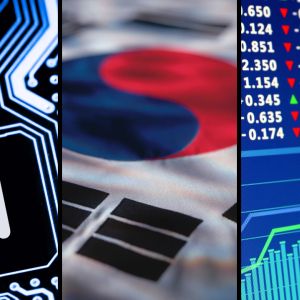South Korea’s stock market is in free fall. It’s chaos out there, and no one knows where the bottom is. The Kospi, the nation’s flagship index, is on its longest losing streak since 2008, plummeting over 8% in 2024. Compare that to a global rally of 18%, and you’ve got a mess big enough to scare off investors in droves. Political instability and market missteps have turned South Korea into a bad joke for equity traders. If that weren’t enough, Donald Trump’s second term has made everything worse. He’s reviving tariff threats on tech exports, spooking the same companies South Korea relies on for growth. The artificial intelligence boom? It’s skipping over South Korea. Samsung Electronics, the country’s pride and joy, is limping along after a 32% stock slide. The company, once a leader in AI innovation, is now playing catch-up. Investors have sold $7 billion worth of Samsung stock this year alone. The surprising bright spots There’s some good news if you squint. Power equipment stocks are riding high. HD Hyundai Electric Co., a relatively obscure player before 2024, became a star with a jaw-dropping 370% gain. Why? AI data centers need more electricity, and Hyundai Electric is cashing in big time. Meanwhile, Samyang Foods is proving that TikTok isn’t just for teenagers and dance challenges. The company’s spicy Buldak noodles went viral in the U.S., pushing its stock up by 250%. The noodles are burning taste buds and filling wallets, making Samyang Foods one of the most talked-about names in South Korea’s market. Some analysts think there’s still more upside for this quirky food company. Banks, too, are having a moment. KB Financial Group Inc., South Korea’s banking juggernaut, is up nearly 60% this year. That’s its best performance since 2009, driven by the government’s “Corporate Value-Up” campaign. The initiative is supposed to reform corporate governance and increase shareholder returns, and the banks are quick to jump on board. At least someone’s getting something right. Samsung and EV batteries tank under pressure Not every sector is winning. Samsung’s collapse has been brutal. The company is struggling to keep up with AI-focused rivals , especially in memory chips tailored for AI processors. Investors had high hopes for Samsung’s partnership with Nvidia, but those dreams fizzled fast. Now Samsung’s being left in the dust by SK Hynix, whose shares are up more than 20% this year. And don’t even get started on electric vehicle battery makers. It’s been a bloodbath. Samsung SDI, Posco Holdings, and LG Chem are all down about 50%, while Ecopro BM, a smaller player, has lost over 60% of its value. Blame Trump again—his promise to repeal the U.S. Inflation Reduction Act has killed incentives for EV purchases, gutting demand. Retail investors, once obsessed with this sector, are nowhere to be found. The future isn’t all bleak, though. The EU is rolling out stricter emissions policies, and there’s talks about industry consolidation. Cheaper EV models might also help revive interest next year. But for now, this sector is in shambles. Political chaos fuels investor panic South Korea has managed to impeach two leaders in one month. President Yoon Suk Yeol was removed after declaring martial law for six hours in December, a decision so extreme it shocked even his supporters. He justified it by claiming it was necessary to “protect the constitutional order,” but the backlash was immediate. Opposition lawmakers wasted no time impeaching him. Then came the downfall of acting President Han Duck-soo. Lawmakers booted him for dragging his feet on appointing Constitutional Court justices. The court is now tasked with deciding whether to reinstate Yoon or make his impeachment permanent. This political circus has shaken South Korea’s reputation as a stable democracy. Investors are nervous, and the Korean won has taken a hit, dropping 0.40% against the dollar to 1,472.22 after Han’s impeachment. The “Corporate Value-Up” reforms, one of the few things keeping investors somewhat hopeful, now look like they’re running on fumes. Without strong political backing, it’s unclear how far these changes can go. As if things weren’t bad enough, South Korea now has to deal with China’s aggressive stimulus measures. Beijing is pumping money into its economy, offering investors shiny new opportunities. South Korea, by contrast, is looking like a sinking ship. Capital outflows are accelerating as global investors chase better returns elsewhere. From Zero to Web3 Pro: Your 90-Day Career Launch Plan

















